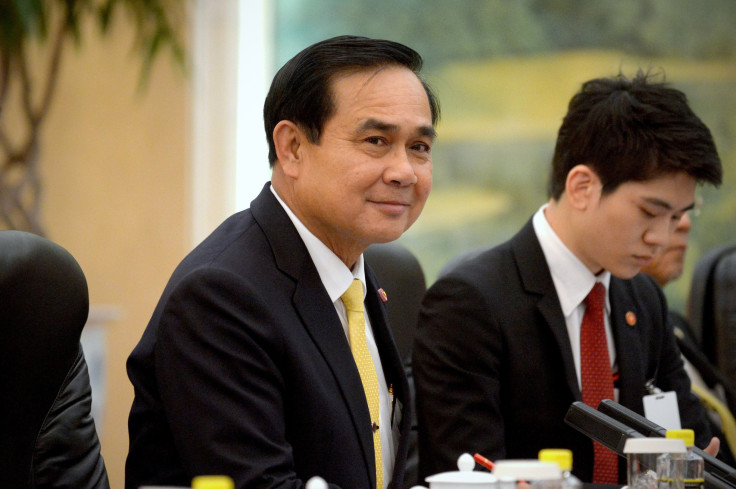Thailand Internet Censorship: Junta Defends Cybersecurity Laws, Orders Press Freedom Briefing Canceled

Thai Prime Minister Prayuth Chan-ocha is pushing for the country’s business and government sectors to be better integrated with the Internet, but he has brushed aside criticism that his junta government’s recent attempts to introduce cybersecurity laws infringe on freedom of expression and the press. At the same time, the junta has also ordered a German rights group to cancel a press freedom briefing scheduled to be held in a Bangkok hotel Friday.
"We need to have national security; otherwise everybody does what they want," Prayuth told reporters in Bangkok Tuesday when asked about the bill, according to the Bangkok Post. "If there is a threat to national security -- a violation, or someone committing a crime -- we need to empower state officials to investigate.” Prayuth insisted that “the new law will not violate the general public's rights,” reported the Thai News Agency.
The government is establishing a new National Cyber Security Agency for the purpose of monitoring Thailand’s Internet, where it will be empowered by 10 new draft bills that have already passed the National Legislative Assembly (NLA). Over half of the NLA are currently military officers appointed into power by the junta that ousted the previous Yingluck government in a coup last May. There have been concerns that the Prayuth government has been increasing Internet censorship ever since he took power.
While the bills have not yet been made publicly available, Internet freedom groups have reportedly obtained a copy, and said that the bills covered “computer crime, personal data, and cybersecurity,” according to the Bangkok Post. "What I am concerned about is Section 35, which says there is no need to ask a court for a warrant. It will just be up to the authorities to decide," Thitima Urapeepathanapong from the Thai Netizen Network told Agence France-Presse. "It will destroy our rights and freedoms -- when we know someone can watch our communications and chats, we will not feel safe."
Dhiraphol Suwanprateep, an Internet-law specialist at the law firm Baker and McKenzie, told AFP that the current bill is very broad, vague and gives the government too much power. "There is no balance between the national security and data privacy, as the government may exercise its discretion without having judicial review," he said. The new laws will come into effect after the agency has been established.
The Committee to Protect Journalists, a nonprofit organization promoting press freedom, has said that Thailand’s new cybersecurity laws will undoubtedly impinge on press freedoms in the country. "Proposed cybersecurity legislation in Thailand represents a clear and present danger to media freedoms," said Shawn Crispin, CPJ's senior Southeast Asia representative, in a statement. "If Prime Minister Prayuth is sincere about returning the country to democracy, he should see that Parliament scraps this bill, which is reminiscent of a police state, and instead enact laws that uphold online freedoms."
Meanwhile, German political foundation The Friedrich Ebert Foundation said Thursday that military officers had ordered their annual press freedom briefing – scheduled for Friday – to be canceled. The briefing intended to examine the challenges journalists face in different Asian countries. "It's true, sadly. We were initially told over the phone, and then the military went to the hotel and told them that we weren't allowed to hold the event," an employee of the foundation, who asked to remain anonymous, told AFP. "We have released these reports every year for many years and have not had a problem until now.”
© Copyright IBTimes 2024. All rights reserved.





















